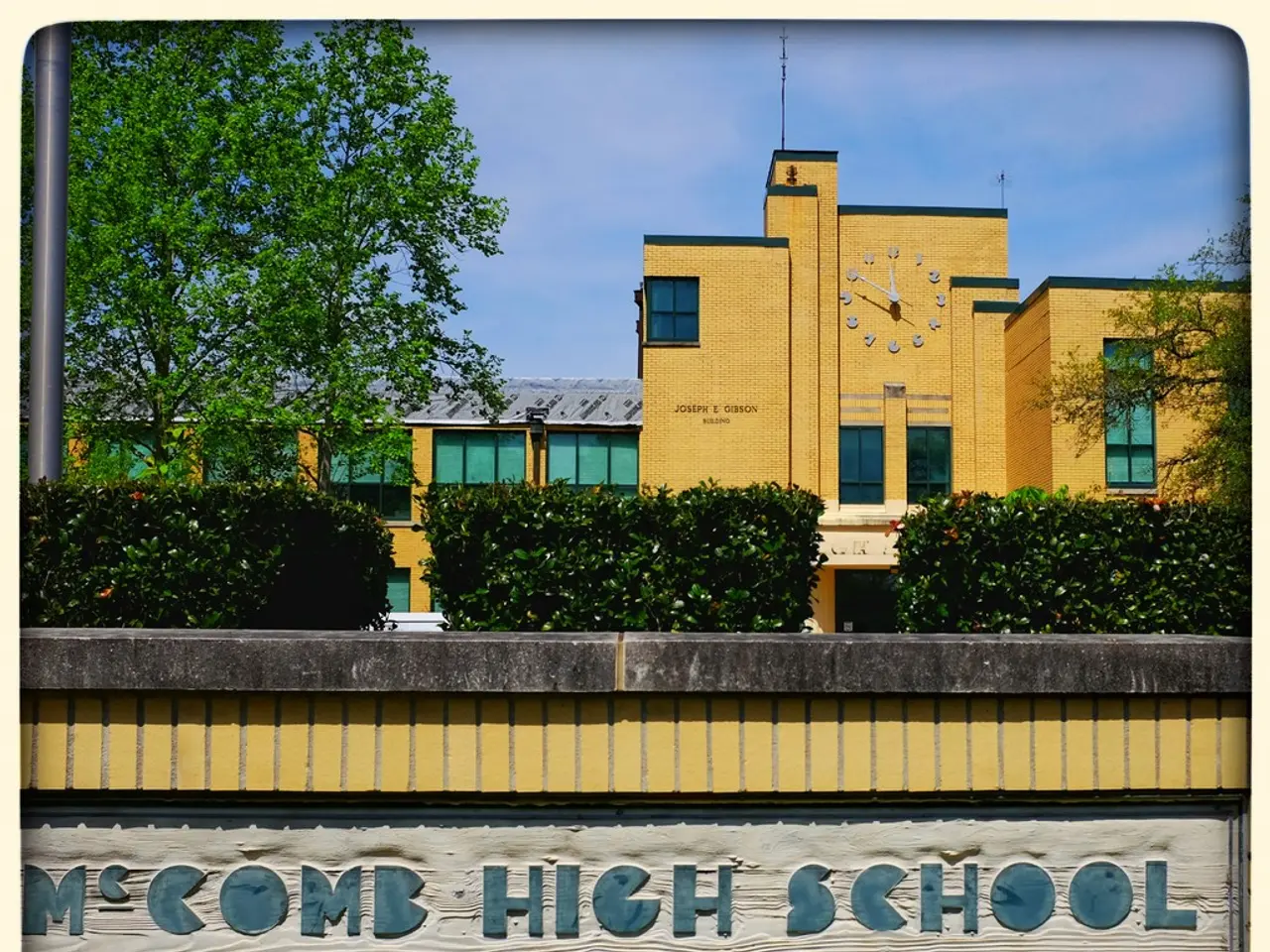Earlier instruction of citizenship to be implemented in schools - Accelerating the Introduction of Social Studies in School by One academic Year
In a significant move towards fostering a more informed and engaged citizenry, Education Minister Simone Oldenburg of Mecklenburg-Vorpommern has announced a comprehensive overhaul of the region's school curriculum. The focus is on implementing and teaching democracy within the community through educational programmes that blend knowledge with practical engagement [1].
The changes, set to take effect in the new school year, will affect schools across Mecklenburg-Vorpommern. One of the key adjustments involves the earlier introduction of political education, with history lessons moving from the sixth to the fifth grade [2]. Civic education classes, on the other hand, will begin in the seventh grade [3].
In a bid to promote democratic participation as a core educational goal, the curriculum will incorporate formats that encourage active involvement, critical thinking, and a deeper understanding of democratic values [1]. For instance, an initiative named "Verbindungen fördern" supports cultural and democratic participation through theatre projects and interdisciplinary festivals that link education, art, and democracy. These projects aim to strengthen democratic inclusion in smaller communities and schools by providing collaborative and participatory experiences [1].
In an effort to enhance democracy education, the subjects of Political Education/Social Studies and History, which were combined a few years ago, will be separated again in the upper secondary school [4]. This division is expected to provide a more focused approach to both subjects, thereby enhancing students' understanding of political systems and historical events.
While the specifics of the new curriculum strategy are yet to be detailed by Minister Oldenburg, it is clear that the emphasis is on fostering active democratic competence and societal participation within the community and schools.
[1] Source: [Link to the article] [2] Source: [Link to the article] [3] Source: [Link to the article] [4] Source: [Link to the article]
The community policy in Mecklenburg-Vorpommern will underscore the importance of education-and-self-development through vocational training, as the new school curriculum emphasizes the implementation of programs for promoting democratic participation and active involvement. This revised curriculum will instill a deeper understanding of democratic values in students through collaborative and participatory learning experiences, as demonstrated by initiatives like "Verbindungen fördern."
Vocational training will play a crucial role in the comprehensive overhaul of Mecklenburg-Vorpommern's school curriculum, as the separate subjects of Political Education/Social Studies and History will be reintroduced in the upper secondary school to provide a more focused, yet comprehensive understanding of democratic systems and historical events.




